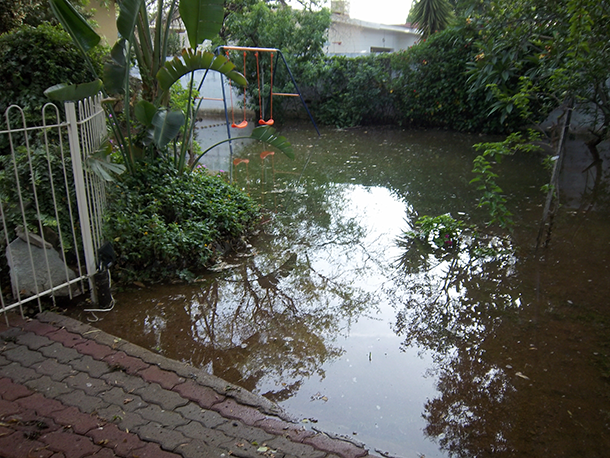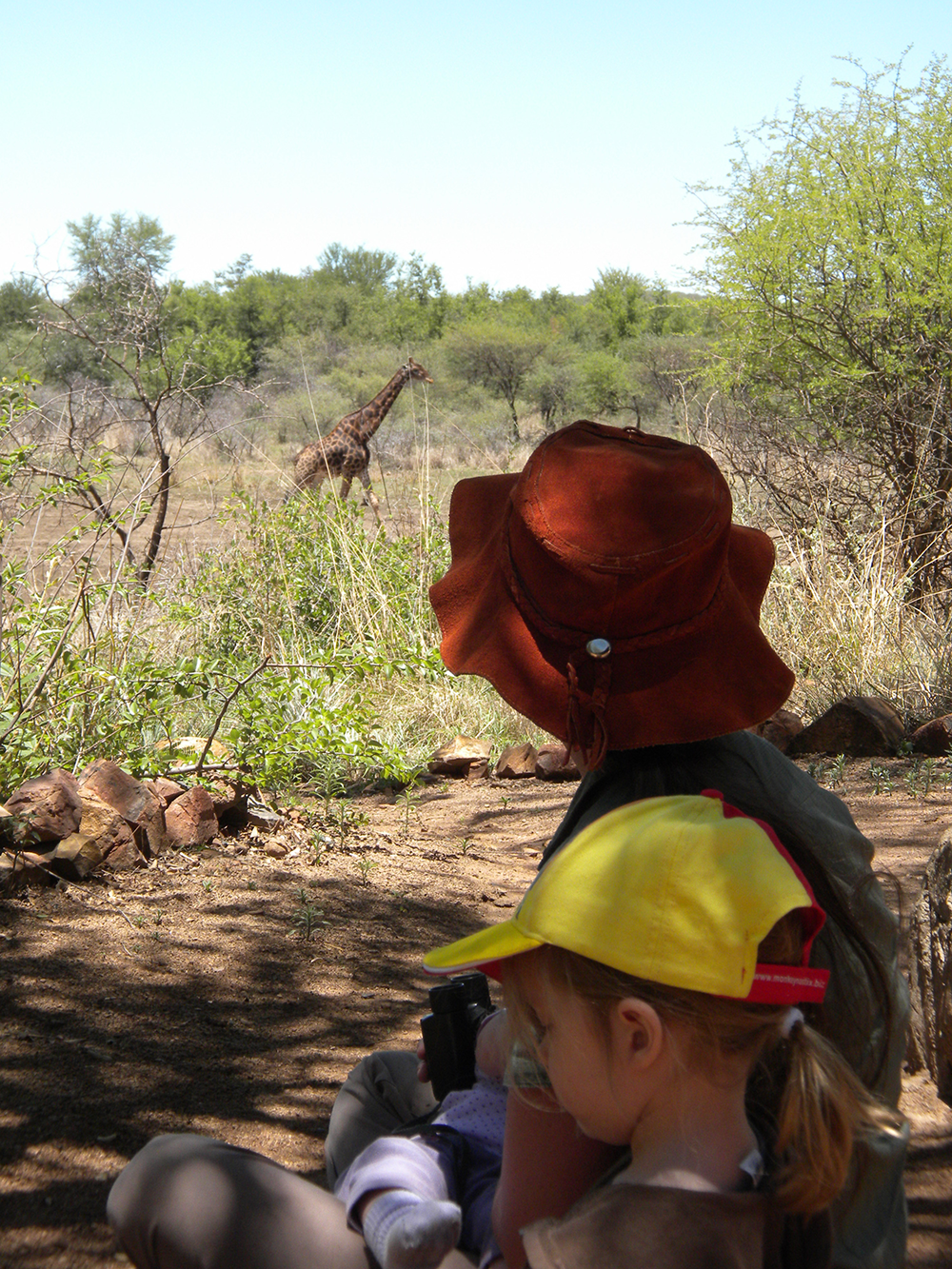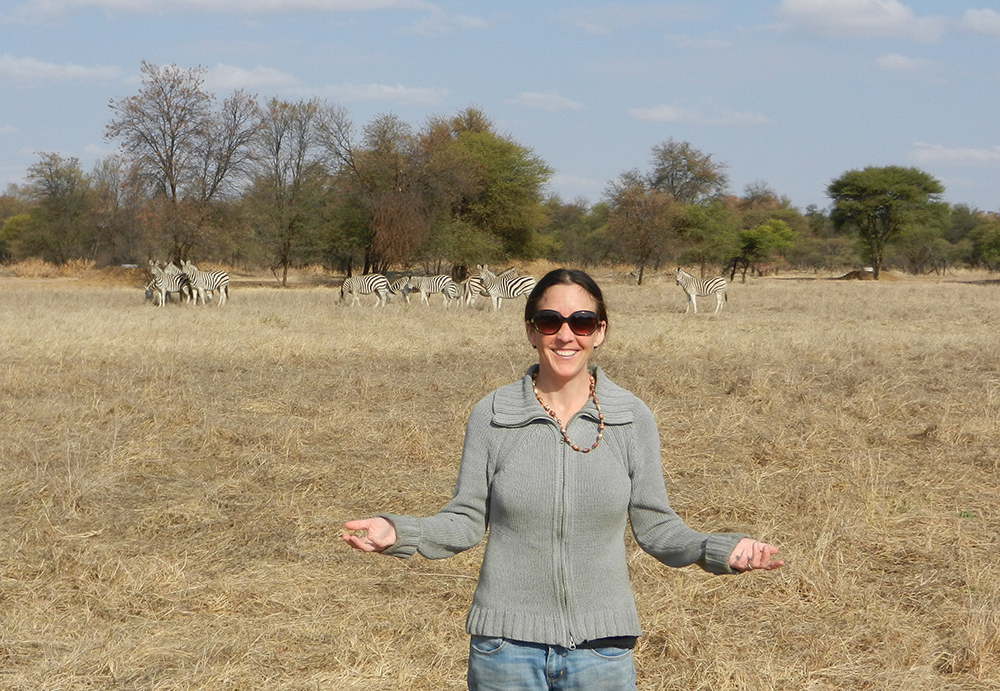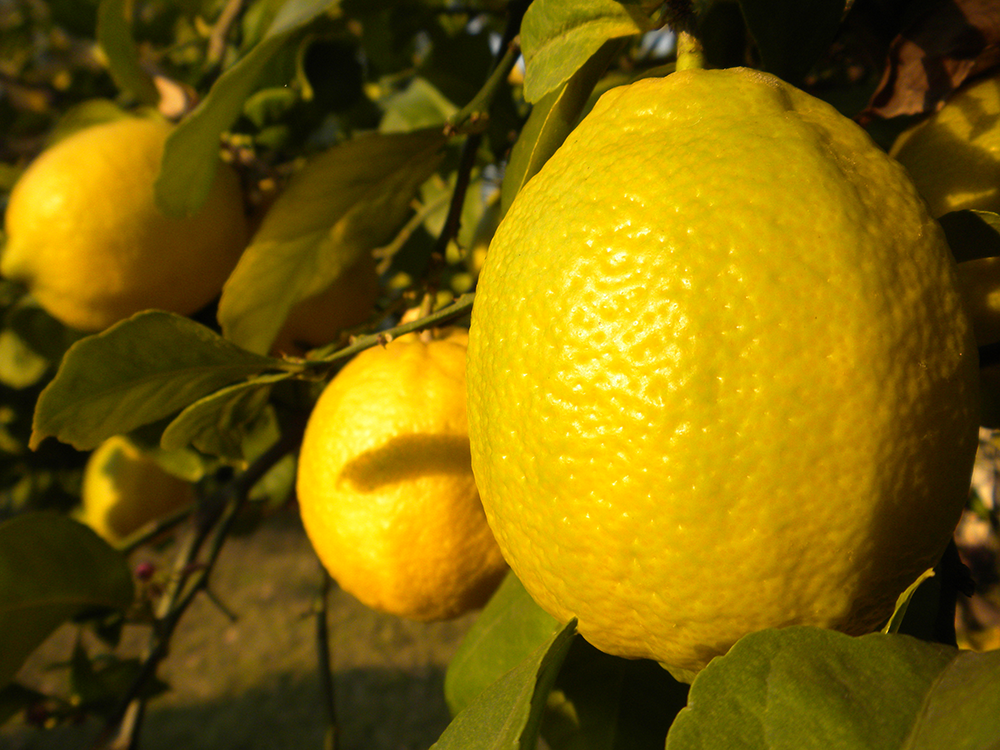Place Where You Live: Gaborone, Botswana
Air Date: Week of December 5, 2014

A water pipe burst and flooded Karin Vermilye’s yard in Gaborone, Botswana. (Photo: Courtesy of Karin Vermilye)
Living on Earth is giving a voice to Orion Magazine’s long-time feature, The Place Where You Live, where people write essays about their favorite places. This week, we hear from Karin Vermilye in Gaborone, Botswana, a city where water scarcity is an ever present concern.
Transcript
CURWOOD: And we stay in Southern Africa for another installment in the occasional Living on Earth/Orion Magazine series “The Place Where You Live.” Orion invites readers to put their homes on a map and submit essays to the magazine’s website, and we’re giving them a voice.
[MUSIC: Edward Sharpe and The Magnetic Zeroes “Home” from Edward Sharpe and The Magnetic Zeroes (Rough Trade Records 2009)]
Your special place doesn’t have to be exotic, but it certainly is for Karin Vermilye.

Vermilye and her daughter watch a giraffe at a game reserve nearby. (Photo: Courtesy of Karin Vermilye)
VERMILYE: I’m from Gaborone, Botswana, that’s the place where I live. So it's near South Africa and Namibia is in the north and Zimbabwe is right there too and Zambia and there's lots of wildlife all around. There's lots of people and it's lively, but it's also quiet. It’s nice for our family. We have two kids and we like to take them out on game drives right outside the city. There's a game park, a few of them actually, not far from here. We love that we can take our young kids and go see zebras and warthogs and ostrich and giraffe just on a weekend or some day after school.
CURWOOD: Here’s Karin’s essay.
[CREAKING DOOR OPENS]
VERMILYE: The water pipe outside our gate burst early one morning. It was a warm night in Gaborone, Botswana, a place I’d called home for two years. A new river bubbled up from the jagged hole in the ground and ran over the gate and into our thirsty yard. My mind was on mosquitoes that, I imagined, would now swarm to this wet oasis. Gaborone is only a few hours away from the Kalahari desert, whose name comes from the Setswana word “kgala” meaning “great thirst”, and Botswana struggles to meet the water demands of its growing population. A few weeks before, I had read another notice on water restrictions and the dropping level of water in the dams. We were urged not to use drinking water for gardens. Therefore, our yard was thirsty. The grass, long past any color close to green, had become a brown akin to the dust that sometimes swirled up around our car as we drove through the nearby game park searching for zebra and giraffe.

Karin Vermilye at a game park near her home in Gaborone, Botswana. (Photo: Courtesy of Karin Vermilye)
The water was finally turned off by Water Utilities at the main line, and the river turned to a trickle, and then stopped. My neighbor had come to help sweep some of the water away from the yard back into the street. The ground by the gate had softened as the water filled every crack in the soil, and it suddenly opened up to swallow her. She quickly put her arms out and stopped her fall into the muddy watery cavern that appeared so swiftly below her feet. We pulled her shaking and wet from the hole, laughing a laugh of what could have been, but did not come to be.
I told her my worries of the mosquitoes, as we sloshed through the water now up to our calves. She shook her head and said it would not be a problem. By noon, all the water was gone. Drunk up by the parched soil. A few days later our yard turned back to green.
CURWOOD: In the Setswana language, “pula” the word for “rain”, also means money – a mark of how scarce and valuable water can be in this parched land.

Plump lemons grow on a tree in Vermilye’s garden. (Photo: Courtesy of Karen Vermilye)
VERMILYE: For many months, it was very dry and so what we would do is save our bathwater and take that outside and water our plants with that. The rains just came and so you can just see that things are starting to come back now. The flowers are starting to come out and some of the plants are trying to peek their heads up from the ground and things like that. We have a lemon tree, and all the lemons are still green from the tree, but they are starting to turn a little bit yellow, so they should be ready in another few weeks, and there's some small little orange trees and a grapefruit tree, but those have not been very big this year because of the lack of water.
CURWOOD: That’s Karin Vermilye, from Gabarone, Botswana – and you can tell us about the place where you live if you like. There’s more about Orion Magazine and how to submit your essay at LOE.org.
Links
How to contribute to Orion Magazine’s The Place Where You Live
Past editions of “The Place Where You Live” on Living on Earth
Living on Earth wants to hear from you!
Living on Earth
62 Calef Highway, Suite 212
Lee, NH 03861
Telephone: 617-287-4121
E-mail: comments@loe.org
Newsletter [Click here]
Donate to Living on Earth!
Living on Earth is an independent media program and relies entirely on contributions from listeners and institutions supporting public service. Please donate now to preserve an independent environmental voice.
NewsletterLiving on Earth offers a weekly delivery of the show's rundown to your mailbox. Sign up for our newsletter today!
 Sailors For The Sea: Be the change you want to sea.
Sailors For The Sea: Be the change you want to sea.
 The Grantham Foundation for the Protection of the Environment: Committed to protecting and improving the health of the global environment.
The Grantham Foundation for the Protection of the Environment: Committed to protecting and improving the health of the global environment.
 Contribute to Living on Earth and receive, as our gift to you, an archival print of one of Mark Seth Lender's extraordinary wildlife photographs. Follow the link to see Mark's current collection of photographs.
Contribute to Living on Earth and receive, as our gift to you, an archival print of one of Mark Seth Lender's extraordinary wildlife photographs. Follow the link to see Mark's current collection of photographs.
 Buy a signed copy of Mark Seth Lender's book Smeagull the Seagull & support Living on Earth
Buy a signed copy of Mark Seth Lender's book Smeagull the Seagull & support Living on Earth

